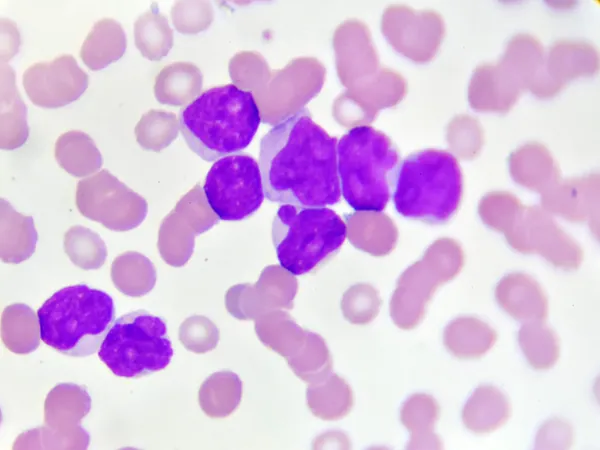
Revolutionizing Blood Cancer Treatment: The Launch of myeloMATCH in the U.S.
2024-09-24
Introduction
A groundbreaking initiative known as myeloMATCH is set to transform the landscape of blood cancer treatment for U.S. patients suffering from acute myeloid leukemia (AML) and myelodysplastic syndrome (MDS). These two forms of blood cancer are notoriously challenging to address, and myeloMATCH aims to provide innovative, targeted therapies tailored to each patient's unique genetic profile.
Overview of myeloMATCH
The myeloMATCH program, which stands for Myeloid Malignancies Molecular Analysis for Therapy Choice, is structured as an umbrella trial. This means it will evaluate multiple therapies concurrently for patients diagnosed with these specific diseases. To underscore the significance of this project, over 100 hospitals and clinics nationwide are participating, making it the largest initiative to date focused on these malignancies.
Understanding AML and MDS
AML is the most prevalent leukemia type in adults, yet it presents a grim five-year survival rate of only around 30%. Patients with AML experience a rapid accumulation of atypical blood cells generated by the bone marrow, with chemotherapy serving as the first line of treatment. Sadly, if initial chemotherapy fails, a stem cell transplant may be the patient's last option.
On the other hand, myelodysplastic syndromes are a spectrum of cancers marked by the bone marrow's failure to produce healthy, mature blood cells, leading to an array of complications including anemia and an increased risk of developing treatment-resistant AML. Approximately 30% of MDS patients progress to this more severe form of leukemia.
The Role of Precision Medicine
Both AML and MDS are characterized by significant variability in genetic mutations, making them ideal candidates for precision medicine approaches. The myeloMATCH study, which originated at the University of Kansas Cancer Center and includes institutions in the Masonic Cancer Alliance, began enrolling participants this past summer. Individuals aged 18 and older with suspected AML or MDS can join the study.
Once enrolled, participants will undergo tests to evaluate a wide range of blood and bone marrow biomarkers. This swift genetic screening process is a major advantage, as results that typically take weeks to obtain are promised within a rapid 72-hour timeframe. This enhanced efficiency is crucial for ensuring timely access to tailored treatment options for those diagnosed with these serious conditions.
Patient Enrollment and Future Prospects
In the event that no specific sub-studies are available at the time of enrollment, patients will still receive standard care while being entered into a database for potential matching with new trials that may arise in the future. The goal of myeloMATCH is not only to improve survival rates but to minimize residual disease as well.
Expert Commentary
"It took a long time to get here, and it’s incredibly inspiring to witness this becoming a national priority for the U.S. leukemia community," remarked Tara Lin, MD, director of the adult leukemia program at The University of Kansas Cancer Center, who also serves as the principal investigator for myeloMATCH. She added, "Our ultimate goal is for every newly diagnosed patient to be able to enroll, receive rapid diagnostic screening, and be assigned to a personalized treatment plan that can guide them throughout their cancer journey."
Conclusion
With such ambitious plans in motion, myeloMATCH represents a beacon of hope for blood cancer patients seeking innovative and effective therapies. As it continues to develop, the initiative stands to redefine survival and treatment outcomes for countless individuals battling these life-threatening diseases.



 Brasil (PT)
Brasil (PT)
 Canada (EN)
Canada (EN)
 Chile (ES)
Chile (ES)
 España (ES)
España (ES)
 France (FR)
France (FR)
 Hong Kong (EN)
Hong Kong (EN)
 Italia (IT)
Italia (IT)
 日本 (JA)
日本 (JA)
 Magyarország (HU)
Magyarország (HU)
 Norge (NO)
Norge (NO)
 Polska (PL)
Polska (PL)
 Schweiz (DE)
Schweiz (DE)
 Singapore (EN)
Singapore (EN)
 Sverige (SV)
Sverige (SV)
 Suomi (FI)
Suomi (FI)
 Türkiye (TR)
Türkiye (TR)